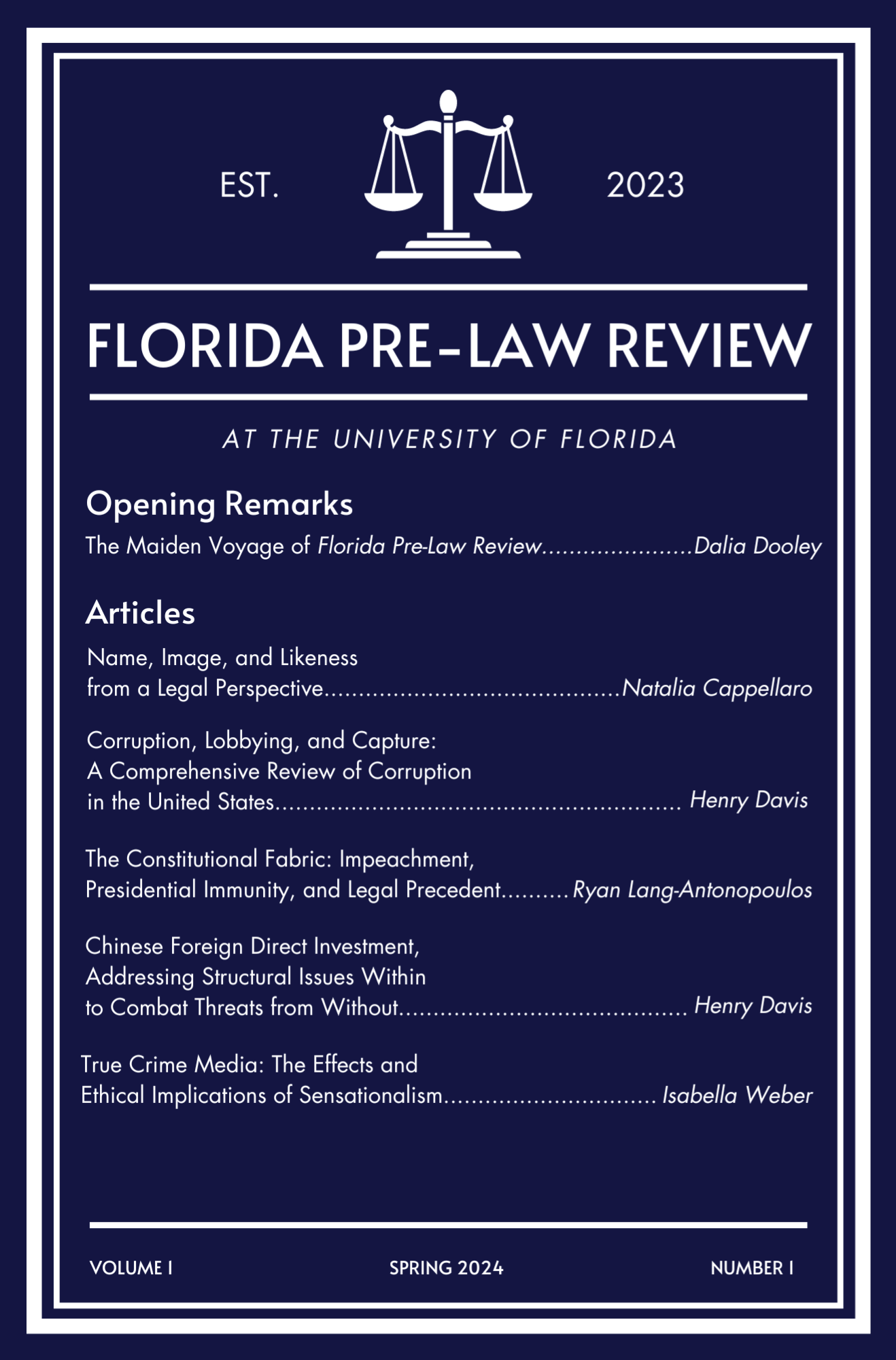Chinese Foreign Direct Investment
Addressing Structural Issues Within to Combat Threats from Without
Keywords:
United States, China, Foreign InvestmentAbstract
US-China relations have become a focal point of American foreign policy in the 21st century. The country is now the most serious threat to Western hegemony since the Union of Soviet Socialist Republics (USSR). However, the threat of China differs greatly from that of Soviet Russia in terms of approach. The USSR chose to operate independently from the US-led world order, whereas China has instead opted to leverage the system from the inside to challenge the US. The primary mechanism by which they have accomplished this is economic. Vast amounts of land, labor, and capital have allowed them to not only be one of the world's biggest exporters of consumer goods but has also allowed them to influence US politics from the inside. The Chinese Communist Party (CCP) has done this primarily through foreign domestic investment (FDI). This paper will examine the US-China relationship and how China has utilized FDI to influence the US. It will then propose a slate of policy options and solutions to address this issue. First, by addressing structural problems in US financial disclosure laws, and second, by using the US power position to leverage China to make policy concessions.


